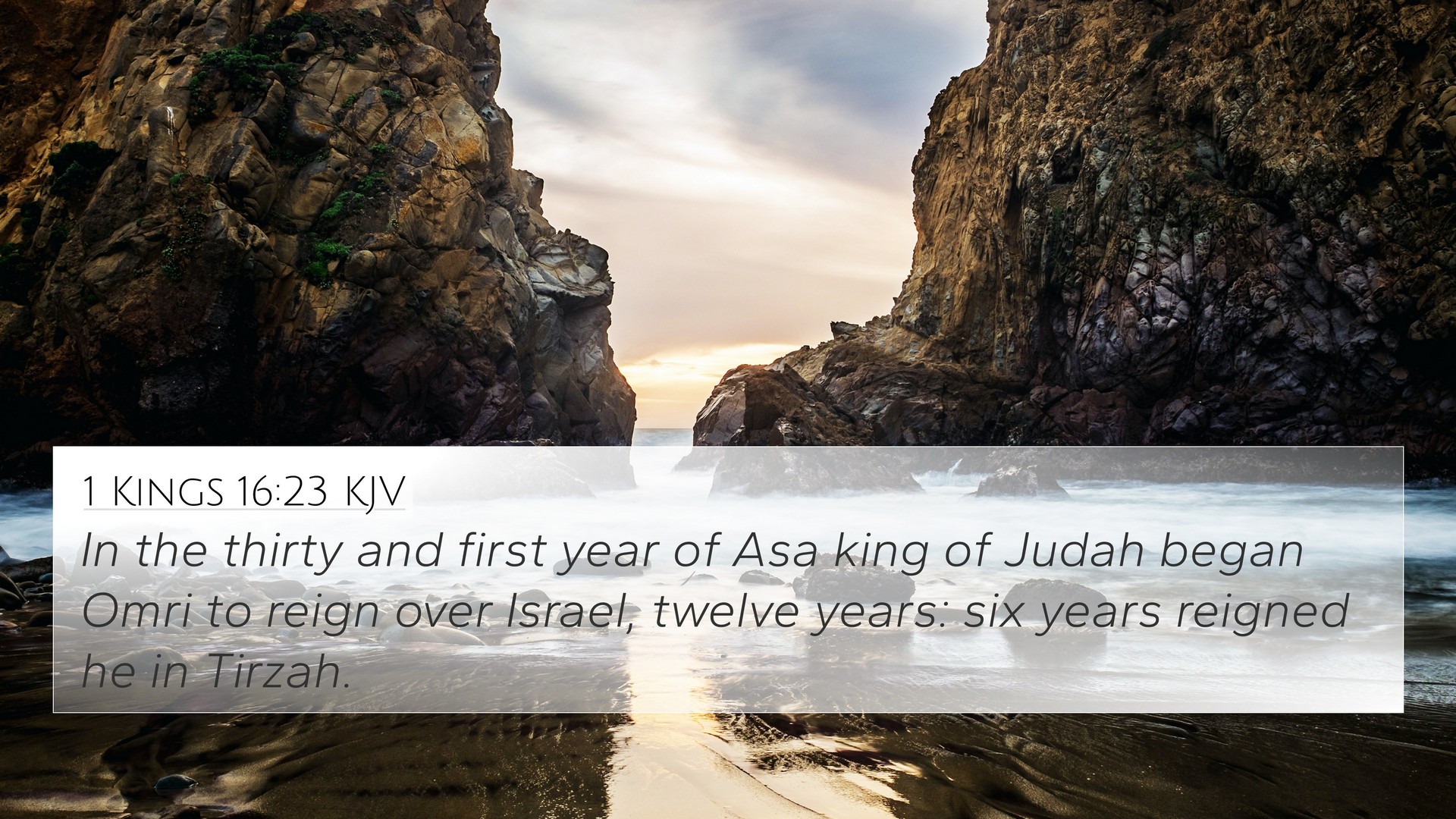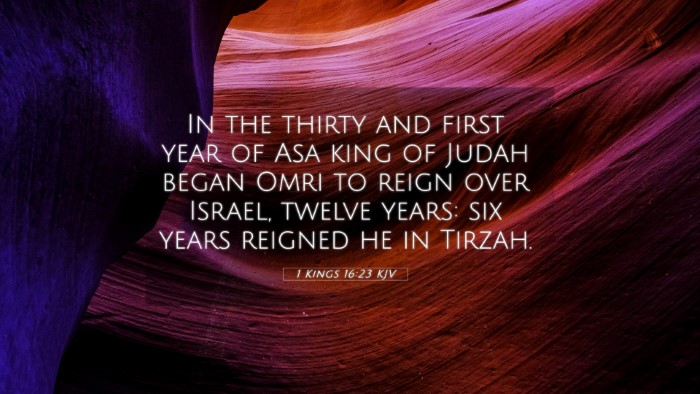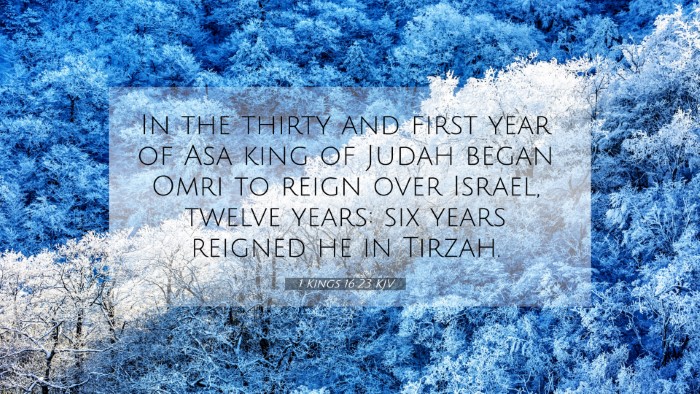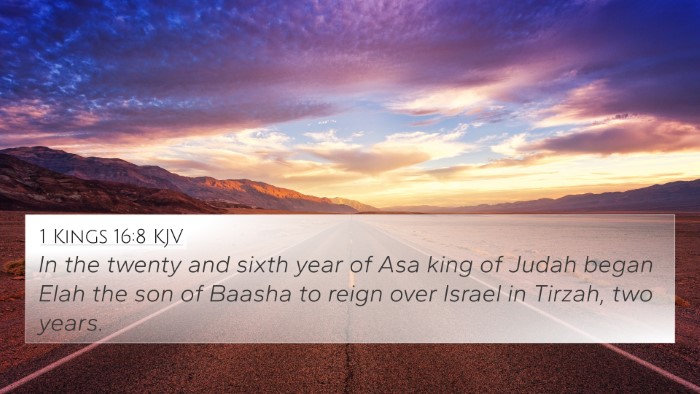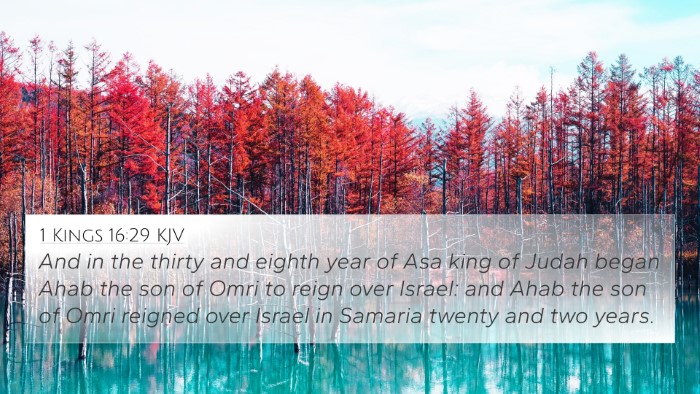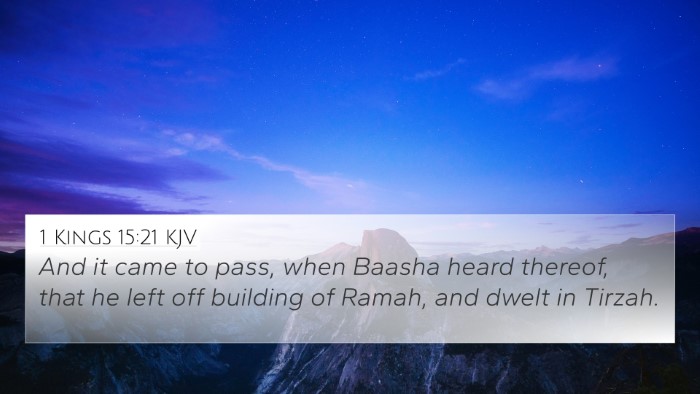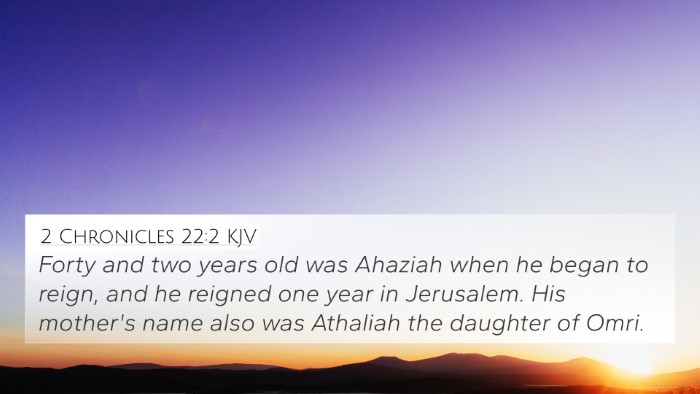Old Testament
Genesis Exodus Leviticus Numbers Deuteronomy Joshua Judges Ruth 1 Samuel 2 Samuel 1 Kings 2 Kings 1 Chronicles 2 Chronicles Ezra Nehemiah Esther Job Psalms Proverbs Ecclesiastes Song of Solomon Isaiah Jeremiah Lamentations Ezekiel Daniel Hosea Joel Amos Obadiah Jonah Micah Nahum Habakkuk Zephaniah Haggai Zechariah MalachiVerse
1 Kings 16:1 1 Kings 16:2 1 Kings 16:3 1 Kings 16:4 1 Kings 16:5 1 Kings 16:6 1 Kings 16:7 1 Kings 16:8 1 Kings 16:9 1 Kings 16:10 1 Kings 16:11 1 Kings 16:12 1 Kings 16:13 1 Kings 16:14 1 Kings 16:15 1 Kings 16:16 1 Kings 16:17 1 Kings 16:18 1 Kings 16:19 1 Kings 16:20 1 Kings 16:21 1 Kings 16:22 1 Kings 16:23 1 Kings 16:24 1 Kings 16:25 1 Kings 16:26 1 Kings 16:27 1 Kings 16:28 1 Kings 16:29 1 Kings 16:30 1 Kings 16:31 1 Kings 16:32 1 Kings 16:33 1 Kings 16:34